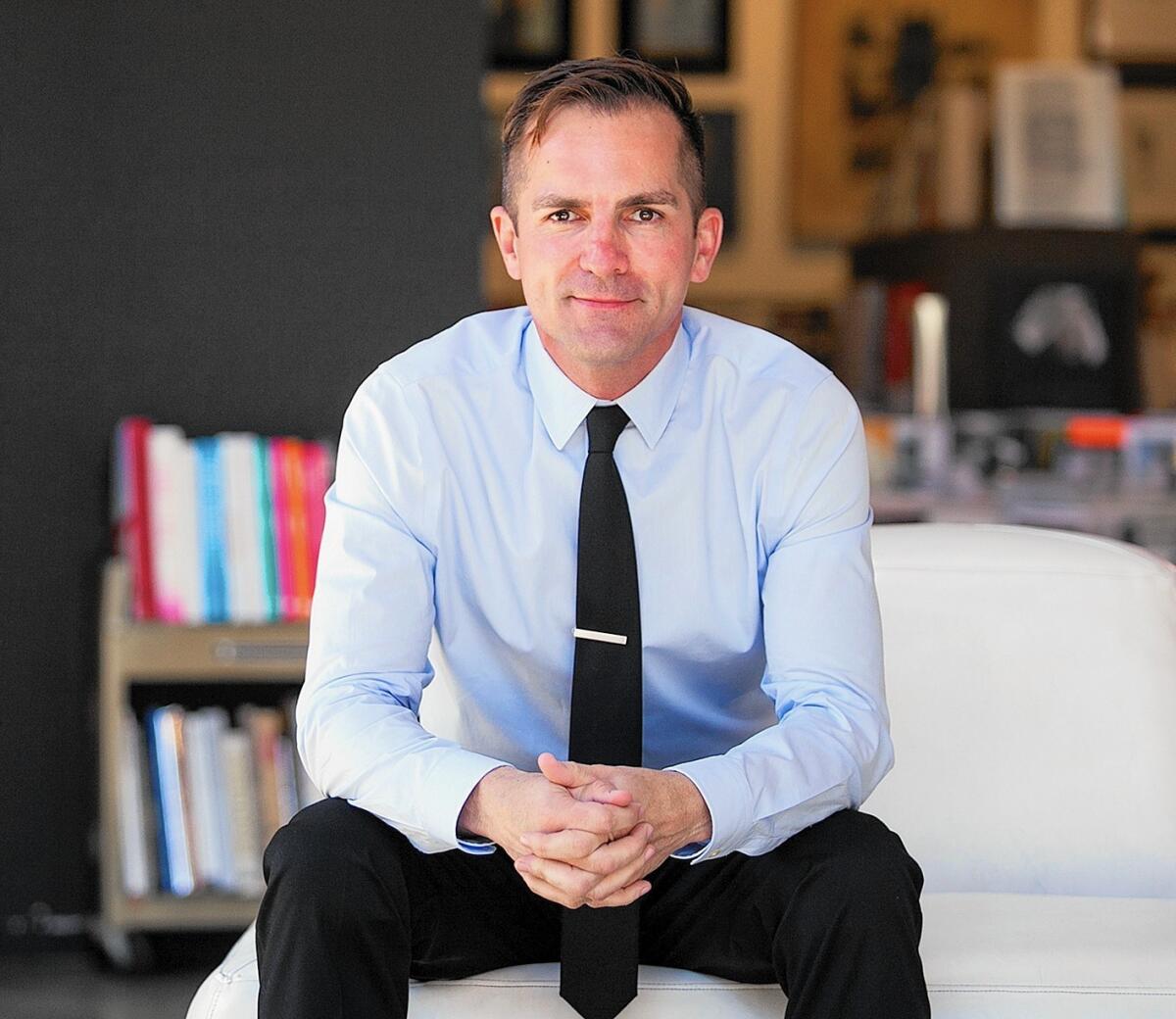Opponents gather to fight Costa Mesa development-control initiative

- Share via
The debate over the future of Costa Mesa development took a new twist Thursday night at the Crew Salon, where a group of about 10 residents concerned about a petition proposing a new hurdle for some projects met to begin figuring out ways to stop it.
The proposal by Costa Mesa First, a political action committee, would require voter approval, not just the City Council’s, for certain developments that meet a variety of thresholds. Among the triggers for a public vote are projects that would require a zoning change or general plan amendment and, on top of either of those, contain 40 or more dwelling units or at least 10,000 square feet of commercial space.
In January, Costa Mesa First leaders submitted about 6,900 signatures to be verified by the Orange County registrar of voters office this month. If 4,995 signatures are verified, the proposed law would go on the city ballot in November.
Thursday’s meeting was organized by Crew Salon employee Chris Bunyan, a three-time City Council candidate who told the Daily Pilot that he is not running this year.
Bunyan said he hopes the group, tentatively called Costa Mesa Residents Against the No-Growth Initiative, can become an official political action committee and accept donations from a variety of interests that will support development, including businesses and unions.
Costa Mesa First’s idea, the meeting attendees said, spells out for a bad future for a city that shouldn’t be subject to so-called ballot-box zoning.
Opponents say the proposed law would stifle growth, deter businesses from moving to Costa Mesa or expanding operations there and possibly start a lawsuit. They cited Malibu, whose restrictive development law that partially inspired Costa Mesa First’s proposal recently failed in court.
Tensions began even before the 6 p.m. meeting started. Some activists who have supported Costa Mesa First’s initiative, including Robin Leffler, tried to join the meeting with the impression that it was public. Bunyan denied them entry, saying he didn’t want the session to devolve into a debate.
“This is not your night,” Bunyan said he told Leffler.
Others at the meeting — including current council candidate Lee Ramos — were on the same page and used the first hour to talk strategy, such as getting outside experts to weigh in on the proposed law and provide objective analysis.
The group said many new projects are worthy of support from voters, particularly those in formerly industrial Westside parcels that clean up contaminated soil and bring in more property tax revenue. A large portion of that money benefits local schools, the group said.
Costa Mesa First says its initiative promotes “smart growth” and is highly democratic, as it would give Costa Mesa residents direct control over land-use decisions.
Jay Humphrey, a former councilman who was one of the organizers of the petition, told the Daily Pilot in January that “this is going to make sure the people who develop in Costa Mesa will live by the rules we have set in the city. They will make choices and do things that will be most productive to the city of Costa Mesa.”
But opponents Thursday felt that new developments like Superior Pointe, near West 17th Street and Superior Avenue, promote smart-growth principles by creating the antithesis of urban sprawl, with walkable neighborhoods near jobs and commercial centers.
“I think the truth is our friend in this deal,” said resident Andy Smith.
The question of who could and couldn’t attend the meeting stirred debate Thursday night in a Costa Mesa Facebook group, with one user commenting, “Sadly, democracy is not in their vocabulary.”
Another commenter had a different view: “For those complaining about not getting in because their viewpoint was not that of the person holding the meeting ... did you really think they would want you there disrupting things?”
